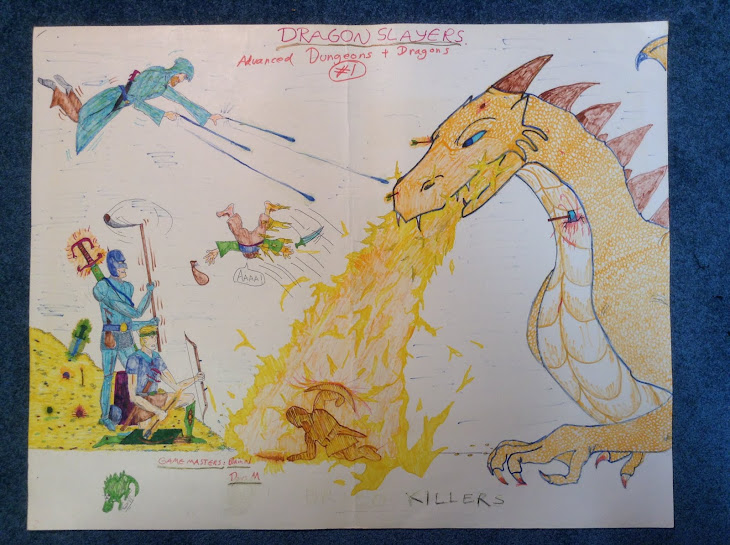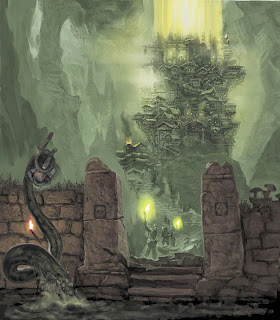
These days, typically in snippets of 5-10 minutes, I find myself reading the following RPG materials:
· Various Call of Cthulhu materials (parts of the core book, various adventures, bits from the Dreamlands).
· The OpenQuest core book and OQ’s Savage North adventure pack.
· Various RuneQuest items (parts of the MRQII corebook, parts of MRQII Monster Coliseum, RQ3 Griffin Island).
· Various Rolemaster things (parts of the RM Classic corebooks, Rolemaster Express, some of my old Middle-earth and Jaiman campaign modules, etc.).
· Various Stormbringer and Elric! (Chaosium’s ‘BRP’ version) items (parts of the core books, the amazing Corum supplement, various adventures); etc.
· Recent issues of Fight On! and Knockspell.
Ever since my last S&W campaign wrapped up I’ve been somewhat ‘at sea’. I’m not sure what to focus on next. Most likely I’ll be running Call of Cthulhu for my Toronto group when I return in late December, so that has provided some structure to my procrastination sessions. But I also cannot help thinking about how to tweak and improve my Ilmahal fantasy setting, including thinking about running something set in Ilmahal using a different system (say, OpenQuest, Elric!, MRQII, or RMC).
At least I have a few months to ‘read around’ before making a decision…




